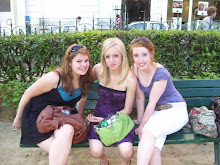British society is represented clearly in both Sense and Sensibility and Four Weddings. In Sense and Sensibility, society is clearly based on class and gender, as we can see represented in the opening of the film. There is a clear hierarchy between the characters, judging them on their class and most specifically their gender. Even from the first scene we can see that men have the dominance over the women, just by family tradition. As the father dies, instead of his possessions and wealth being passed on to his wife and family, it is instead passed to his brother, leaving his close family with nothing. In Four Weddings, however, we can see a real change in traditions. The women seem to be almost equal to the men. We can see this by the way Curtis has portrayed all the characters together as friends. There is no sense of hierarchy and power; it all seems to be very equal.
In Sense and Sensibility, women are very important to the plot and to the presentation of society. Fanny is an important character, particularly in the opening, as we get a real sense of her dominance. This is ironic, in comparison with the initial scene, because the audience are under the impression that men have authority over women. However, in the second scene with her husband, she clearly has the power over him making it humorous and ironic. Fanny is the first female character that we see; she is presented as upper-middle class, very proper and rich. She also speaks in a very posh English accent, which seems again quite comedic in comparison with her husband’s accent. Similarly, she is in posh attire also- she seems fashionable and rich. Fanny is clearly controlling over her husband and we can see this by the camera angles Li has chosen to portray. We can see Fanny’s power in the two-shot camera angle and by the amount of speaking Fanny does in comparison with her husband.
The representation of the Dashwood’s in Sense and Sensibility is very different. They seem depressed, upset at the loss of their home and possessions and obviously, the death of their father/husband. This is highlighted by the dark lighting presented throughout their house which suggests a mournful, morbid state which indicates their feelings and emotions at this stage. The music, piano playing in minor, also adds to this feeling of depression. Their clothing and attire is very simple and plain, in comparison with Fanny, connoting a less sophisticated and posh way of living. There is no clear sense of fashion in the characters. Camera shots and angles are also used in the passage to distinguish a sense of money and class. The sweeping shot over the portraits signifies the previous wealth of the Dashwoods and highlights the loss of their money now.
Class system is a really important part to this film. Leggott, J, 2008’s Contemporary British Cinema states that ‘class systems are a central or sub textual role to a plethora of films’. Indeed, in the case of Sense and Sensibility I believe this is correct for the reasons that, although gender is important, it is a presentation of the Upper-middle class at this time and therefore is important to the film. This sense of class being a central role to the film is highlighted later in the film with the meeting of Williby.
Four Weddings and A Funeral is based around the lives of a similar class of people, Upper-middle class. However, it differs completely in the values and traditions of women because it is a modern piece. The presentation of women is much more equal to that of men, there seems to be an equated boundary between the two sexes. They are seen, very much, as friends and are seen in many mid-shots as all together in a group. There is no real dominance in the film from either sex, which shows a changing tradition, although the film is on a similar story line to that of Sense and Sensibility. Both films are about marriage, and the need for it in society. However, the outcome differs in each movie. In Sense and Sensibility, the Dashwoods marry the ones they love and in Four Weddings, Hugh Grant ends up unmarried. Perhaps this is some revelation of the modern time we are in, and therefore Four Weddings has a much more normal tone to it. It is also ironic that Hugh Grant should appear in both movies as a main character. Hugh Grant is a statement of British cinema, and therefore we know these films are very British. He plays similar characters in both; bashful, kind and in desire of love which can link to what is said in Observer Film Month Quarterly’s article about Richard Curtis. ‘There are also, of course, classic Curtis characters which appear in most, if not all of Curtis' films- "hopeless floppy-haired young man in love’.
To conclude, we can see there are many similarities and differences to Sense and Sensibility and Four Weddings. Four Weddings seems more modern and honest in its presentation of love, where as Sense and Sensibility still has an almost fairytale-like quality with its outcome. This is because Four Weddings is modern, and Sense and Sensibility is an adaptation of Austen’s novel, written in the 1800’s. Both share similar British qualities, however, and are a presentation of the middle class. Indeed, it seems ironic how Hugh Grant should play almost identical characters in both but again this develops the British feel to the films.

